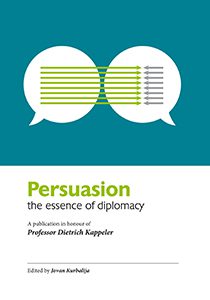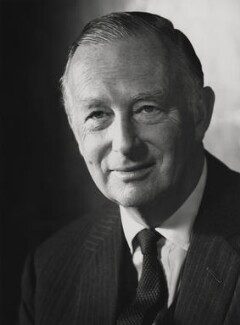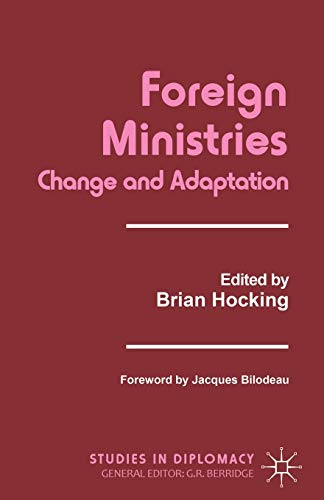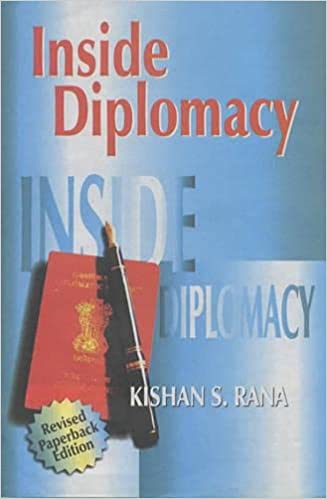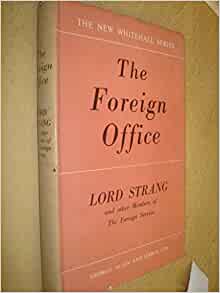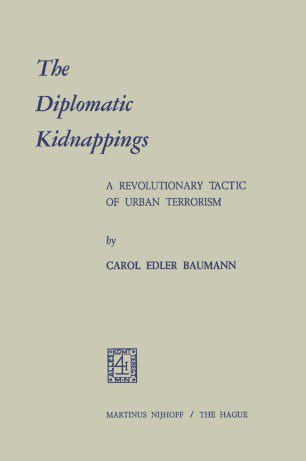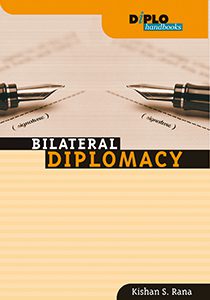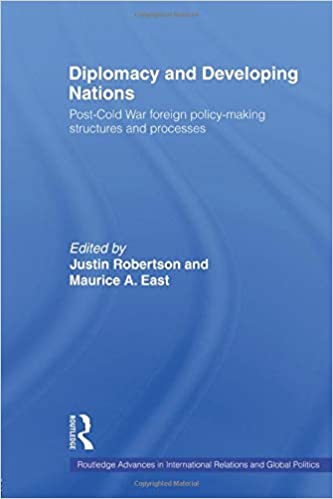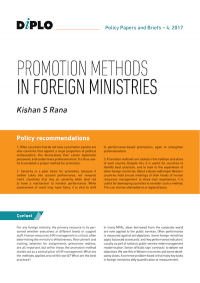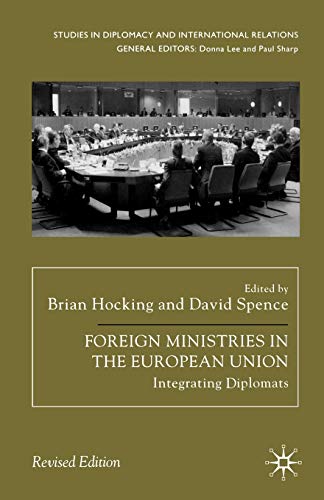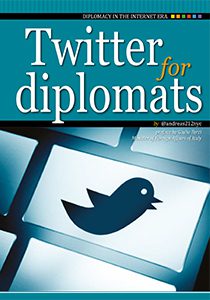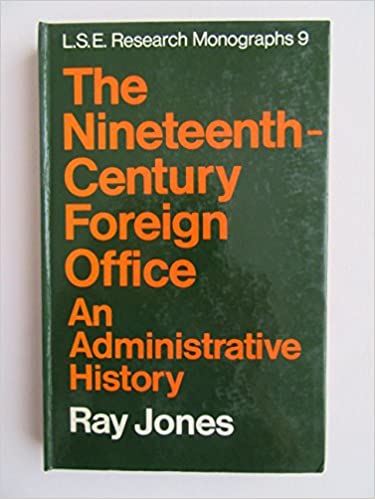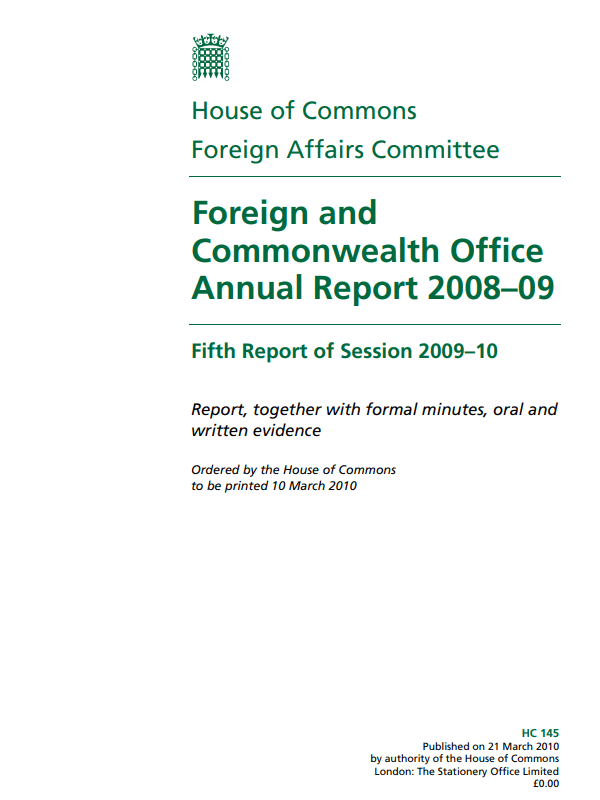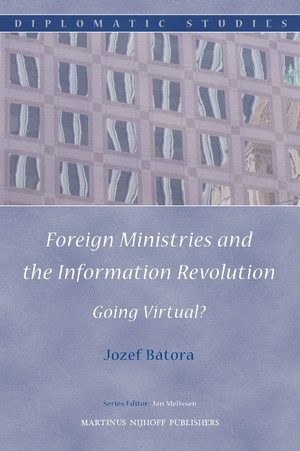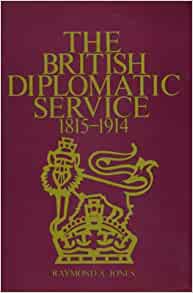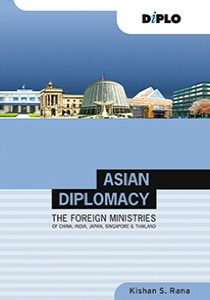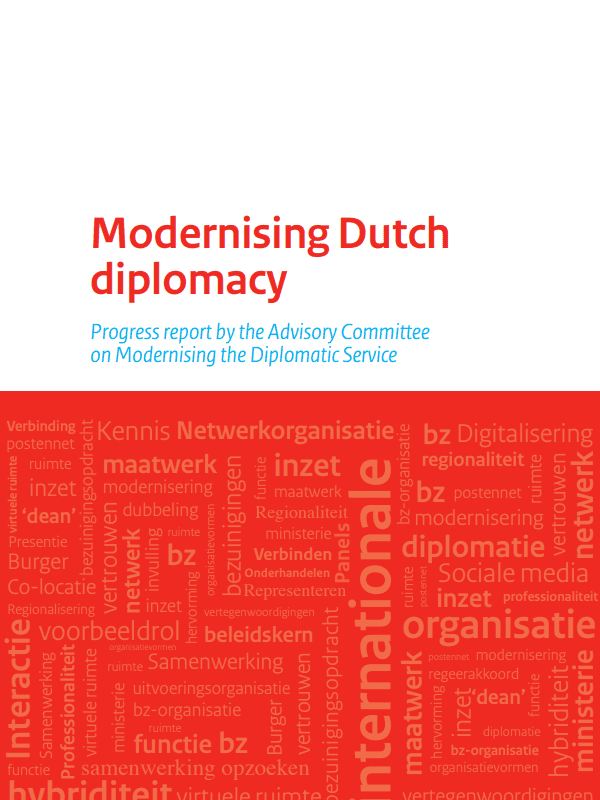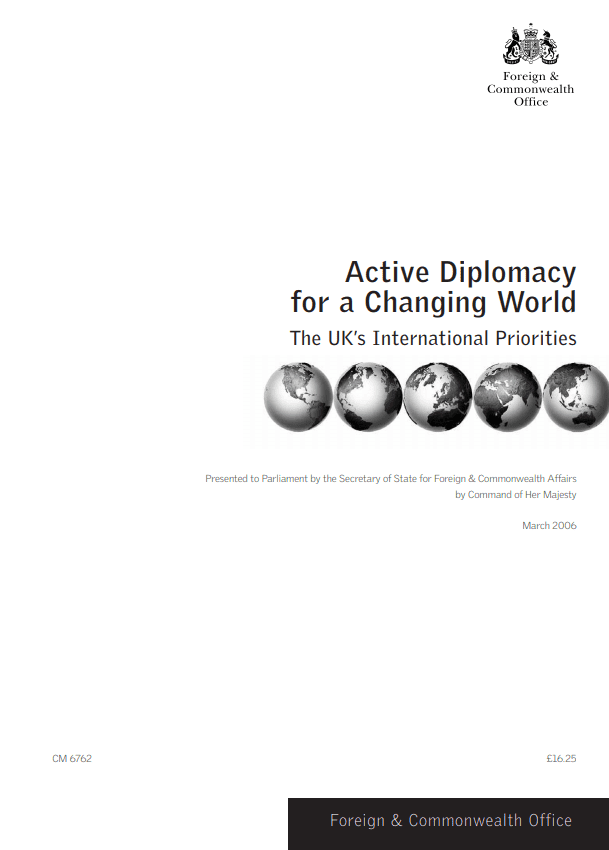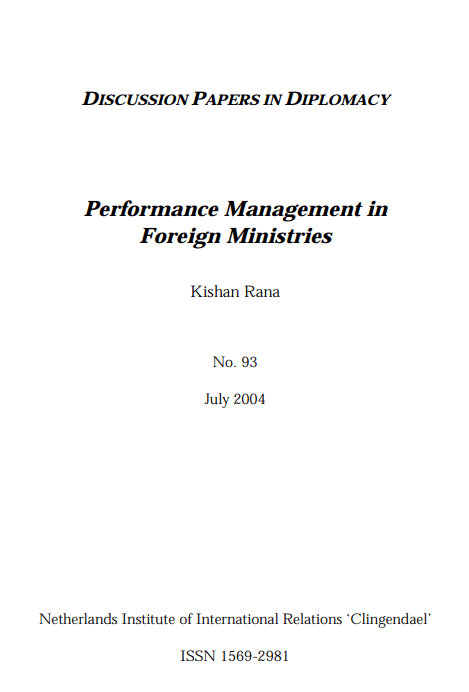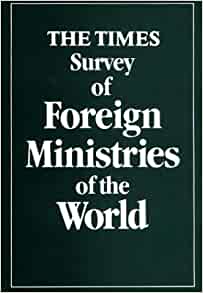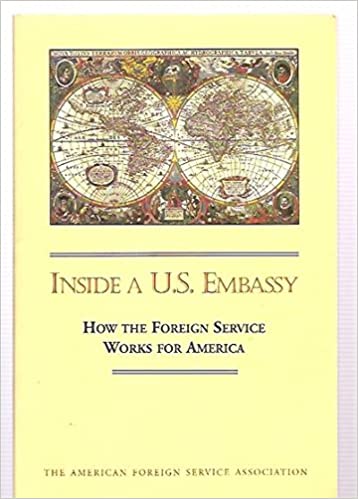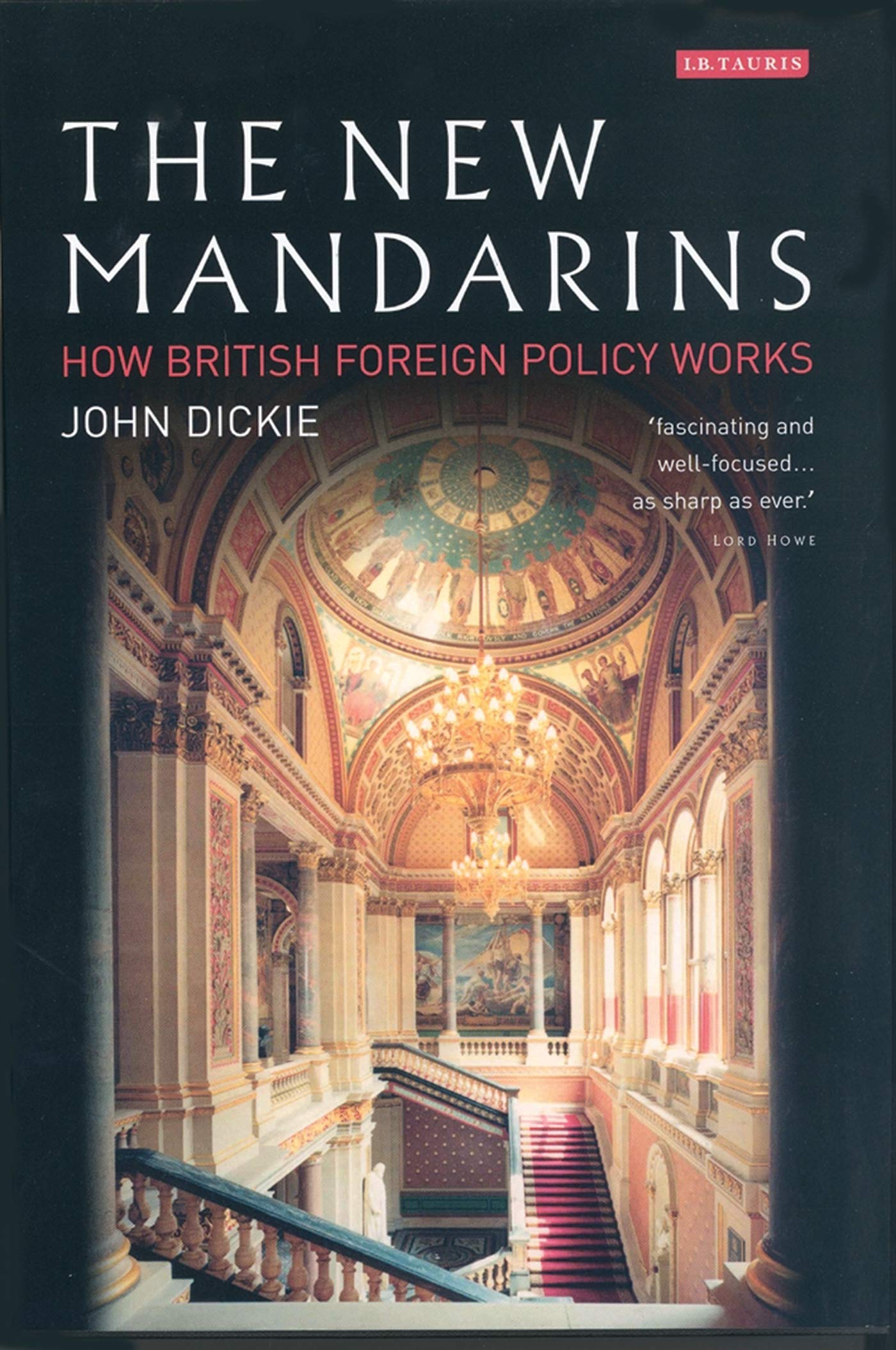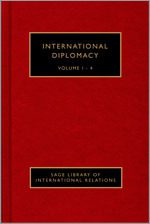In the spring of 1986, a little over three years before the demolition of the Berlin Wall, Professor Alfred Grosser contributed to Politique Etrangère a brief survey of fifty years of Franco-German relations. The article came to no very startling conclusions. Grosser noted that, although West Germany was superior to France in an economic and monetary sense, France was the superior of the two in three other respects: as one of the four powers responsible for the governance of Berlin, France was a co-possessor of German sovereignty; unlike West Germany, France, was a nuclear power; and “l’Allemagne a eu Hitler dans son passé et la France pas.”2
Few political scientists have been quite so explicit in citing history per se as a component in the balance of power. Yet, in referring to Hitler, Grosser was making an obvious point. West Germany in the 1980s was constrained by Germany’s recent past, and the same has, perhaps to a lesser extent, remained true of a reunited Germany in the 1990s. Not only have military defeat, occupation and the limitations imposed by the Federal Republic’s Constitution restricted its capacity to exercise its power abroad, but the memory of National Socialism has stamped a hideous stereotype upon Germany’s past and cast a long shadow over its present and future conduct. Bonn’s foreign-policy initiatives, even when taken in the contexts of the European Union and the North Atlantic Alliance, have been susceptible to claims, often from critics who should have known better, that Germany was reverting to expansionist ambitions attributed to Hitler. The epithet the “Fourth Reich” has acquired sinister connotations which have only a tenuous connection with the First and Second Reichs and virtually nothing to do with contemporary German politics.
Germany has not, however, been alone in finding its diplomacy hampered by its history. Countries, like people, are judged in terms of their past actions or, at any rate, according to how such actions are interpreted by historians and translated into popular culture. This has become only too evident in an era in which charges of collective guilt and demands for diplomatic apologies, redress and recompense have become such a significant feature of global politics. It is therefore hardly surprising that since their emergence at the end of the seventeenth century foreign ministries have found it necessary and, where not necessary, prudent, to manage that particular branch of knowledge labelled the historical past, They, along with other government departments, have sought to use archives and historians to promote a more favourable national image abroad, to reinforce territorial claims, and to achieve other political goals—a process which might be conveniently described as historical diplomacy. It has involved controlling access to records, the sponsoring of official or semi-official histories, and the publication of diplomatic documents.
Foreign ministries have always been well placed to fulfil this last function. After all, few human activities generate more documents than does diplomacy, and few others are so dependent for their success upon the efficient administration and utilisation of archives. Full and accurate records provide enlightenment on past developments and precedents for current and future negotiations and, in consequence, some of the oldest divisions of modern foreign ministries are those responsible for records management. Diplomacy may still be regarded as a secret craft, separated by protocol and its own peculiar rites and rituals from the public at large. Yet diplomatic archives remain one of the most extensive and potent sources for the public’s understanding of the past, and the publication by foreign ministries of selections of their correspondence, memoranda and other papers, has been a powerful stimulus to the study of international relations.
Not all such publications can be characterised as historical diplomacy. Foreign ministries share with other government agencies and departments a duty to keep members of the public informed with regard to enactments, legislation and political and economic changes likely to affect their lives and livelihoods. The provision of such information is an obvious requirement of good government. Individuals travelling abroad and companies engaged in international commerce and investment need to be kept abreast of developments which might impinge upon their enterprise. And the British, with their world-wide trading interests, were amongst the first to engage in the regular publication of documentation relating to frontier changes, international treaties and negotiations.
Lewis Hertslet, the Foreign Office Librarian from 1810 to 1857, and his son and successor, Edward, were pioneers in this work. Of Swiss/Lombard origin, the Hertslets made the management of Foreign Office records virtually a family business. Brothers, nephews and sons were employed, and the Librarian’s Department, which had custody of correspondence and treaties, became the Office’s collective memory, providing detailed information and guidance on the major international issues of the day. It was also a paying concern. In 1820 Lewis Hertslet published as a private undertaking, but with a guaranteed order from the Office, two volumes of Commercial and Slave Trade Treaties. Six years later there appeared the first volume of Hertslet’s classic reference work, British and Foreign State Papers.3
Originally intended only for distribution to government ministers and British missions abroad, this collection of treaties and other political and commercial documents went on sale in 1831 and continued in annual production until 1968. Edward Hertslet continued the family tradition. He too published documents, and he too made sure he received adequate remuneration for the work. After having succeeded his uncle, James Hertslet, as sub-Librarian in 1855, and his father as Librarian in 1857, he began work on his four-volume Map of Europe by Treaty, a collection of maps and papers recording political and territorial changes in Europe since 1814. He also undertook the editing of a parallel series, The Map of Africa by Treaty, the third and final volume of which appeared in 1909.4
Meanwhile, the British Foreign Office, along with other foreign ministries, had become actively involved in the editing and publication of works which were intended not simply to inform, but to persuade. This was in many respects a diplomatic response to the emergence of public opinion, that is to say the increasing political importance of all those non-governmental opinions which found public expression in the press, national and provincial assemblies, the universities, and the great houses, salons and societies of Europe’s expanding intellectual and political elite. The impact of such opinions varied according to the political and social institutions of different countries.
But even in autocratic Russia the Tsar’s ministers had to take account of a slavophile intelligentsia when handling relations with the Austrian and Ottoman empires. Elsewhere, the growth of literacy and the establishment of popularly elected parliaments led to the greater involvement of chancelleries, ministries and diplomats in attempting to defend their decisions at home and in seeking to influence governments abroad. Already, in the aftermath of the Seven Years’ War, the British government had released for publication documents relating to the negotiation of the Peace of Paris of 1763. Then, in the aftermath of the Napoleonic Wars, the Foreign Office began the more or less regular publication of selections of diplomatic correspondence in the form of parliamentary papers or Blue Books.5 Other countries followed the British example.
Thus, after the British reoccupation of the Falkland islands in 1833 the government in Buenos Aires published papers dating from the crisis over the islands of 1770-71,6 and more than fifty years later Anglo-German friction over colonial claims caused Bismarck to lay the first of his White Books before the Reichstag. The Emperor Napoleon III had by then sanctioned the annual publication of a selection of the Quai d’Orsay’s correspondence and, in 1861, the State Department launched a similar but more enduring series, the Foreign Relations of the United States (FRUS). The French experiment with an annual series did not survive the Franco-Prussian war. Nevertheless, French governments continued to publish Yellow Books which, like their British counterparts, dealt with specific negotiations and particular developments.
Documents released in this fashion were sometimes emasculated and occasionally falsified. There were also instances when despatches were deliberately drafted with subsequent publication in mind. Such collections were meant to influence parliamentarians and a wider public, and documents were often selected for essentially propagandistic ends. Foreign ministers thereby sought to justify their conduct and win support against domestic and foreign rivals. But during the last quarter of the nineteenth century governments were also increasingly engaged in sponsoring the publication of volumes of diplomatic documents which were intended not so much to persuade or defend, as to enlighten and educate the public in the principles of foreign policy. This work was closely linked to that process of state-forming and nation-building which was so characteristic of the period, and it was often accomplished by diplomats working in association with academics who would not have blushed at being called patriotic historians. Some of its most enthusiastic disciples were to be found in the German empire.
Nineteenth-century Germany was, in the words of the French historian Gabriel Monod, nothing less than a “vast laboratory of history”,7 and the writing of history became a social integrating factor in the new Reich. North German historians were especially anxious to stress the political virtues of Prussia, and prominent among their number was Heinrich von Sybel, the founder of the Historische Zeitschrift and director of the Prussian state archives. Under his auspices, and with the financial backing of the Prussian Landtag, there began in 1873 the publication of the monumental collection of historical documents, Publicationen aus der königlichen Preussischen Staatsarchiven. These covered both domestic and foreign politics. Long before the Fritz Fischer debate of the 1960s German historians understood the importance, if not the Primat, of Innenpolitik, and the first foreign relations volume of this series did not appear until 1882, when Paul Bailleu edited a collection of documents dealing with Franco-Prussian relations during the revolutionary and Napoleonic eras.
Sybel captured the spirit of the series in his preface to the first volume which appeared in 1878. “A people”, he announced, “which knows not from whence it comes, also knows not whither it goes. Its political education will only be effected in a sound manner if it is tied to a living consciousness of its historical development, and this is not imaginable so long as original documents remain inaccessible.”8 These words were readily endorsed in France where the foreign ministry was already considering the possibility of publishing its own diplomatic records.9 French historians had been deeply affected by the events of 1870-71. They attributed France’s involvement in the war with Prussia and its defeat in part to the failure of the French educational system. As the director of the newly-established Ecole libre des sciences politiques declared in 1873, the French public had been all too easily led astray in the summer of 1870 by a frivolous and nationalistic press. It was the duty of France’s historians to equip the French nation with a proper understanding of international affairs so that in future such calamities would be avoided.10
There was also a profound sense of disillusionment with Bonapartism. A rising generation of republican intellectuals believed that France must separate itself from its immediate past in order to rebuild its strength. Gabriel Hanotaux, a diplomat, historian and sometime foreign minister, proclaimed that the new era demanded a new history.11 But a new history required new documents or, at any rate, better access to old ones; and it was largely with a view to meeting this need that in 1874 a Commission des Archives Diplomatiques was established in the Quai d’Orsay.12
Composed of archivists, librarians, distinguished historians and former and serving diplomats, and inspired by the Prussian enterprise, the Commission decided in 1880 to begin the editing and publication of the instructions given to French envoys in the period 1648-1789. These were the Recueil des Instructions données aux Ambassadeurs et Ministres de France depuis les traités de Westphalie jusqu’à la Révolution française, the first volume of which was edited by Albert Sorel and covered relations with Austria.
A series of this nature, even though it dealt with events of previous centuries, was almost bound to raise sensitive issues, particularly when editorial comment conflicted, as it sometimes did, with current policy concerns. Bertrand Auerbach, who edited a volume containing the instructions to France’s representatives to the Imperial Diet at Ratisbon thus found himself in trouble when he supplemented his documents with a narrative in which he suggested that German nationalism had developed in reaction to France’s persistent interference in Germany’s internal affairs. This was not what French diplomats wanted to read when the manuscript of the volume was submitted to the Commission in 1911, and it was only after protracted discussion and radical amendment of the text that the work was cleared for publication. There were, as this and other similar cases were to demonstrate, obvious limits to popular enlightenment in the Third Republic.13
Those responsible for another and in many ways far more important series of French diplomatic documents, Les Origines diplomatiques de la Guerre de 1870-1871, seem, perhaps surprisingly, to have experienced fewer such editorial problems. Their volumes were, like the Instructions, aimed essentially at revealing to Frenchmen the recent history of their country and at drawing their attention to the shortcomings of Bonapartism. The decision to proceed with the publication of this series was taken in 1907, shortly after the formation of Georges Clemenceau’s first administration, and appears to have been linked to the triumph of radical republicanism.
It was also in part a reaction to the attempt made by Napoleon III’s last prime minister, Emile Ollivier, to use his voluminous memoirs to rehabilitate the Second Empire. French radicals wanted to show how imperial undiplomacy had contributed to bringing about the war of 1870-71 and France’s humiliation by Prussia. As Stephen Pichon, Clemenceau’s foreign minister, claimed in the preface to the first volume of the Origines, a democracy had the right to be truthfully instructed so that it might judge the men who had so profoundly affected its destiny.14 So likewise was it necessary to provide a democracy’s representatives with an education in diplomacy.
Indeed, in initiating the publication of French diplomatic documents in the 1870s French ministers and officials had assumed that these would assist in providing French diplomats with a proper understanding of their craft. Elie Decazes, the foreign minister who established the Commission des Archives Diplomatique, had asked its members to recommend documents for publication which would provide a true diplomatic education. He wanted to give to France’s envoys the means to penetrate the details and procedures of past policies which had given France its grandeur. In other words, he was looking for models which French diplomats could follow in seeking to restore France to its proper position in Europe.15
Members of the Commission were also to claim the volumes they published were intended to be manuals for the instruction of diplomats. The correspondence of France’s ambassadors and ministers of the seventeenth and eighteenth centuries was meant to serve as a practical guide to dealing with contemporary issues. Whether aspiring young French diplomats ever did dip into any of the volumes of the Recueil des Instructions is another matter. It would be interesting to know whether Camille Barrère and the brothers Paul and Jules Cambon, the ambassadorial triumvirate which did so much to enhance France’s international stature in the years before 1914, found inspiration in the despatches of Hugues de Lionne or Nicholas de la Motte Goulas.
But the idea that diplomats could learn from history, indeed that there were lessons to be learned, was a constant theme in French thinking about the publication of diplomatic documents before the First World War. Moreover, those French historians who participated in the meetings of the Commission seemed ready to believe that through the publishing of diplomatic documents they had altered the course of history. They readily praised themselves for that revival of French nationalism which helped bring about the elevation of Raymond Poincaré, himself a Commission member, to the presidency of the republic in 1913. And in the aftermath of the war Hanotaux applauded his colleagues for having given to the French people a spirit of continuity which satisfied the deepest interest of the country, and for having made Frenchmen aware of the opportunities which lay before them. A thorough grasp of history had, it would seem, helped France regain its preeminence over Germany.16
The First World War was of course in itself a great stimulant to the publication of diplomatic documents. No sooner had it begun than foreign ministries hurried to print and publish selections of their prewar correspondence, not as an act of enlightenment, instruction or education, but rather as an attempt to justify stances taken during the war crisis of 1914. Governments were anxious to rally popular support at home and abroad and sought to demonstrate that they were not responsible for the conflagration. In time the British published their Blue Book, the French their Yellow Book, the Germans their White Book, the Russians their Orange Book, and the Austro-Hungarians their Red Book.
But these publications were often little more than sophisticated propaganda, prepared in great haste and without too much attention being paid to accuracy and detail. Of more significance for the future publishing of diplomatic archives were the new demands for more open diplomacy which grew in intensity as the conflict edged towards total war. In Britain, for example, the Union of Democratic Control, an organisation which counted amongst its leading members a future Labour prime minister, Ramsay MacDonald, was particularly critical of the secret diplomacy of the past which it held in large part responsible for the war. If such conflicts were to be avoided in the future then, its advocates maintained, diplomacy must be conducted more openly and be subject to democratic control. It was the need to respond to such criticisms that led the British Foreign Office to consider a more comprehensive publication of documents than that originally contained in the Blue Book of 1914.17
Prior to the outbreak of the war the British had seemed to lag behind their continental neighbors in publishing comprehensive volumes of relatively modern diplomatic documents. The Public Record Office received a government subvention to publish its series, Calendars of State Papers, catalogues of public papers with introductions and notes. These were valuable collections, but such diplomatic correspondence as they contained hardly went beyond the end of the sixteenth century. Indeed, in the early years of the twentieth century British historians began to show increasing concern over the apparent failure of the British government to assist historical research by funding the publication of Foreign Office records in anything other than Blue Book form.
There was a feeling that modern European history, which usually meant the history of the revolutionary and Napoleonic period, was being written on the basis of foreign documents. Yet the Foreign Office, despite its reputation for secrecy, was not unsympathetic to such complaints. Eyre Crowe, a senior Foreign Office official well versed in German history, was particularly concerned about how little original historical research was being done in Britain. In 1908 he went so far as to propose that some historians should be given privileged access to Foreign Office records of a recent date. He also recommended the establishment of a Historical Section or Research Department in the Office with the specific object of engaging in such work.18 “We have,” he noted, “nothing to lose as a nation and a good deal to gain by the widest possible publicity being given to our transaction with foreign countries.”19
Nevertheless, any shift towards the Foreign Office taking a more active role in sponsoring the publication of documents, other than Blue Books and the British and Foreign State Papers, had to await the outbreak of war. Then, in addition to the desire to respond to public criticism of British diplomacy, it is possible to discern five factors which encouraged the Office to show more enthusiasm for such work.
First, the personal doubts of Lord Grey, the foreign secretary in 1914, and his desire to ensure that the record was set right by a thorough publication of documents relating to his tenure of office; secondly, the acquisition by the Office during the latter stages of the war of a Political Intelligence Department and a Historical Section, in which historians were employed on propaganda and research work; thirdly, the belief shared by several of these that in a more democratic world the Foreign Office would have to educate its new masters and engage in fostering what Professor Charles Webster called “enlightened patriotism”; fourthly, the challenge posed by the Bolshevik revolution and the decision of the Soviet leadership to publish the secret treaties of imperial Russia; and finally, the concern felt by many British diplomats that the exigencies of war and the growth of prime ministerial diplomacy had eroded the Foreign Office’s role in the formulation and implementation of policy, and that the Office required a popular constituency to support its cause.20
Professor James Headlam-Morley, who was assistant director of the Political Intelligence Department and, from 1919, the Office’s first Historical Advisor, made much of this point. He argued in 1918 that the Office had become too aloof and that in modern times that aloofness “must tend to diminish the weight and authority of the office.” It was, he insisted, necessary to provide the educated and interested members of the public with information, “not inspired guidance”, but the kind of information governments had before them when they took decisions.21
Headlam-Morley was, however, no match for the Treasury. In the early postwar years no money was available for the kind of publishing projects he had in mind, and for the time being public parsimony triumphed over patriotic enlightenment. British governments, nonetheless, found it increasingly difficult to ignore the very public campaign which the German authorities waged against the treaty of Versailles. Indeed, few diplomatic instruments have had a greater impact upon the writing of international history. The victorious allies had, in order to provide a legal basis for their claims for reparation payments, all too confidently asserted in article 231 of the treaty that the war had been “imposed” on the allied and associated powers by the “aggression of Germany and its allies.”
This, the so-called “war-guilt” article, meant that diplomatic historians in general, and German historians in particular, would for much of the following decade continue to focus their attention not on the historical question of how did the war originate, but on the moral and legal question of who was responsible for it. If it could be demonstrated that Germany and its allies were not guilty, or at any rate not alone in their guilt, then the entire legal basis of reparations could be destroyed, and the moral basis of much else in the treaty would be undermined. The result was a diplomacy which was open, public and retrospective, in which the writing of history became tightly entwined with current international issues. The inter-war years became the golden age of historical diplomacy in which an ongoing debate about the recent past imposed itself upon current decision-making.
The German foreign office played a major role in initiating this debate, and German diplomats became masters in the art of what one historian has called “preemptive historiography”. A war-guilt section, the Kriegschuldreferat, was established in the Wilhelmstrasse with the object of sponsoring the publication of documents and other material specifically aimed at countering the implications of article 231. This involved not only the use of German documents, but also those of other countries when available. In one instance a whole collection of Russian documents, the correspondence of Alexandre Isvolsky, was purchased secretly for publication by the section.
But the collection of diplomatic documents for which the Wilhelmstrasse will always be remembered was Die Grosse Politik der Europäische Kabinette, a magnificent series of documents published in fifty-four volumes between 1922 and 1927 and spanning the years 1871-1914. The collection remains an indispensable source for anyone studying late nineteenth and early twentieth-century international history. Yet its purpose was very obviously to persuade rather than to enlighten or instruct. The volumes were intended both to defend Germany against its accusers and to mount an offensive against the legal and moral basis of the Versailles settlement.
They were partial and obviously intended to give support to a particular interpretation of the past. Their editors, a lawyer, a theologian and a librarian, relied wholly upon foreign office documents, thereby omitting important material from other agencies and departments, such as the war ministry, which exercised a powerful influence on the decision for war in 1914, and they seemed ready to suppress or shorten other potentially damaging documents.22
There can, however, be little doubt about the success of the Grosse Politik as an exercise in historical diplomacy. It was the first major series of diplomatic documents to be published on the origins of the war, and it formed the basis of much of the early historical writing about the prewar period. Moreover, it had a considerable influence upon historical writing in the United States and upon opinion in former neutral countries. Indeed, the British and French governments soon found it necessary to mount an archival counter-offensive.
The Foreign Office in London was particularly concerned about the impact of the Grosse Politik upon popular perceptions of the war and about the doubt that had been cast upon the validity of the British Blue Book of 1914. Nevertheless, it was not until 1924, when Ramsay MacDonald became prime minister in the first Labour government, that Headlam-Morley and other officials were at last able to secure political backing for the publication of a British equivalent to the Grosse Politik. Even then, the Treasury, worried by the cost of the exercise, tried to delay the appointment of editors. The latter, George Peabody Gooch and Harold Temperley, were deliberately selected as independently-minded historians whose past readiness to criticise British foreign policy would, it was assumed, help inspire public trust in the new series. And the eleven volumes of British Documents on the Origins of the War, which appeared between 1926 and 1938 responded almost as much to a longstanding desire on the part of officials and historians to be able to educate the public in the principles and traditions of British diplomacy, as they did to the immediate wish to combat German interpretations of the recent past.23
Gooch and Temperley had many difficulties to overcome in the selection of material for their volumes, most of them relating to the Foreign Office’s decision that former allies should be consulted before the publication of communications originating with them. Other government departments were also sometimes less than generous in allowing access to their records. But the British editors have generally been regarded as more impartial and objective than their German analogues, and most of their volumes have stood the test of time.
The greatest weakness of the series probably lies in its Eurocentric orientation—a tendency which doubtless owes much to the then prevailing view that the war’s origins were essentially continental and to the fact that the editors’ remit did not extend to the records of the India Office. The series also extends over a much shorter period than the Grosse Politik, beginning in 1898, and then only with a very brief volume whose contents seem sometimes to betray a desire on the part of the editors’ to explain the rise of Anglo-German antagonism, rather than British policy towards the issues it purports to cover.
The one former wartime ally which raised the most objections to the work of the British editors was France. Protests from the Quai d’Orsay delayed the publication of the first volume of the British Documents, that dealing with the war crisis of 1914, and provoked Gooch and Temperley’s first, but certainly not last, threat to resign. French politicians and diplomats were reluctant to admit that there could even be a debate on the origins of the war. After all, if Germany’s war guilt were questionable then so also were French claims to reparation payments and France’s military presence in the Rhineland. Only slowly did the French foreign ministry begin to appreciate that the historical debate could not be halted by France assuming a purely negative stance.
And even after the decision had been taken in 1928 to proceed with the publication of the Documents Diplomatiques Français (DDF) the project was beset by financial difficulties. Indeed, in 1934 the ministry of finance came close to halting all work on the volumes, and the series was not completed until 1957.24 Like the British Documents, the DDF were, in the first instance, intended to counterbalance the influence of the German volumes. Yet, also like the British, the French never truly succeeded in regaining the historical initiative in the inter-war years. The volumes of the DDF covering the period 1871-1914 are almost certainly the most extensive and comprehensive of those published by foreign ministries after the First World War. But their production was too long delayed to allow them to serve as effective instruments in the pursuit of historical diplomacy.
The feeling that the Wihelmstrasse had won a considerable propaganda victory, especially in North America, through the publication of the Grosse Politik and other documentary series helped carry the historical diplomacy of the inter-war years into the 1940s. In 1939 a British historian, Llewellyn Woodward, who had served in the Foreign Office’s Historical Section during the First World War, reflected that the Germans had, in acting so quickly to present their case to the world, done much to influence American opinion in a sense unfavourable to Britain. And in order to prevent this happening again, Woodward began to press during the early stages of the Second World War for the publication of a set of British documents on Anglo-German relations in the 1930s.
There was some resistance to the proposal, especially from politicians who were perturbed about what might be the effect of publishing documents relating to such controversial events as the Munich conference of 1938. Yet the prospect of the Americans publishing their own diplomatic records of the inter-war years encouraged ministers to take a more sympathetic attitude towards Woodward’s plea, and in 1944 the decision was taken to proceed with the publication of another collection of British documents, the Documents on British Foreign Policy (DBFP), covering the period 1919-39.25 Meanwhile, it was decided that an allied commission would take on the responsibility for publishing captured German documents on foreign policy for the 1930s and 1940s—a case perhaps of archival or historical disarmament.
Since the 1940s the DBFP series has been completed by historians working on contract and full-time for the Foreign Office and its successor department, the Foreign and Commonwealth Office (FCO). But a series which at its inception was underpinned by a fairly clear diplomatic purpose, that of ensuring that in any debate on the origins of the Second World War the fullest account should be taken of British records, had by the 1960s become essentially a work of public enlightenment.
The adoption in 1968 of the thirty-year rule for the release of British government records meant in any case the opening to researchers of almost all the Foreign Office correspondence for the years covered by the series. Likewise, the majority of the published volumes of the latest collection of British diplomatic documents, Documents on British Policy Overseas (DBPO), have been edited largely on the basis of records available to scholars at the Public Record Office.26 The two latest volumes of the collection, those published early in 1998, and covering the years 1968-75, have however broken new ground. They contain documents entirely from the closed period.
In some respects this project was facilitated by the end of the Cold War: the volumes contain material that in the late 1980s might still have been regarded as too sensitive to publish. The recent past is, after all, for most governments too important to be left solely to historians. Yet the decision to embark on the volumes was inspired primarily by a desire to reinvigorate DBPO and to ensure that the series continued to sustain, as well as supplement, research into the history of Britain’s foreign relations. A more liberal records policy offered opportunities which could not be ignored; and renewed public interest in the final decades of the Cold War suggested a market that could not be neglected.27
Other foreign ministries are also committed to the publication of major series of diplomatic documents. In addition to FRUS, whose numerous volumes have become the basis for so much research into the Cold War, editors in Austria, Australia, Canada, the Czech Republic, France, Germany, Israel, the Irish Republic, Italy, Mexico, the Netherlands, Russia and Switzerland are all engaged in documenting twentieth-century diplomacy. These developments have gone well beyond the bounds of the historical diplomacy of the inter-war years, and reflect an increased readiness on the part of governments to encourage and maintain informed public debate on international affairs. Moreover, the end of the Cold War has stimulated renewed interest in the recent and not-so-recent past. Ambitious schemes for the editing of diplomatic documents have been accompanied by the pursuit of archival accords governing access to, and the joint publication of, documents. A “new world order” appears to demand a new world history, and historical revelation has again become both a function and an instrument of political change.
The democratising process has itself led to a new openness with regard to state archives, but access to them continues to serve a political purpose. The debate which reopened in the late 1980s, and which attracted considerable interest in the Baltic states, Poland and Russia over the existence and significance of the secret additional protocols of the Nazi-Soviet pact of 1939, arrangements which in effect provided for the partition of eastern Europe, was in part the result of glasnost in the Soviet Union. But it was also intimately connected with the endeavours of the Estonian and Lithuanian national movements to assert their independence of Moscow.
Soviet historians had to tread warily in handling such material. After all, Soviet suffering and losses during the Second World War had been used to justify Soviet predominance in central and eastern Europe, and yet the very magnitude of these sacrifices could be regarded as a by-product of Stalin’s consorting with Hitler.28 There has not, however, so far been any indication of a new war of the archives on the scale of that waged in the 1920s. On the official level archival détente and cooperation appears to be the order of the day. Like the radical-republicans of early twentieth-century France, the leaders of the emerging democracies of the east seem more concerned with publicising the transgressions of their predecessors than with exploiting archives to take pieces on the international chess board. They thereby enhance their own status and inhibit any return to former practices. History not only reinterprets the past in the light of the present, it also reinforces and legitimises the present by exposing the past.
Archivists and historians have not been slow in claiming for themselves a role in reshaping the new order in eastern Europe. In June 1993 I.V. Lebedev, the then director of the History and Records Department of the Russian foreign ministry, described his ministry’s archives as part of the “culture and spiritual heritage” of the people. “Now,” he added, “our historians and archivists should have their say in regard to the development of the very delicate process of formation taking place in the new Russia’s immediate geopolitical vicinity, by issuing warnings about past mistakes and suggesting historically sound and politically acceptable decisions.”29
Few western historians could feel quite so confident about what they had to offer. Those engaged in editing the major national series of diplomatic documents tend to conceive of their task in less pedagogic terms. Their aim is to assist in providing the raw material of international history; and if there is any one broad political objective implicit in their work it is that of encouraging the writing of diplomatic history on the basis of their own as well as foreign archives. History will of course continue to be used in support of diplomatic ends, and this seems all the more likely as newly-emergent states seek to define themselves in terms of their real or supposed historical pasts. And, as in earlier periods of revolution and reform, facts may be adjusted and rearranged to satisfy the requirements of political change.
There is a story, apocryphal perhaps, that when on 28 June 1919 the delegates assembled in the Hall of Mirrors at Versailles for the treaty signing ceremony, one of the German representatives turned to the French premier, Clemenceau, and said: “I wonder what history will say about this.” Clemenceau replied that he did not know what history would say, but he did know what it would not say. “History”, he declared, “would not say that on 3 August 1914 Belgium invaded Germany.” Yet who today, when counterfactual history is so much in vogue and when the Internet provides opportunities for virtual diplomacy, could be so sure? Advances in information technology have facilitated the more efficient management of knowledge by foreign ministries: they may also offer new, possibly Orwellian, perspectives for diplomacy’s handling of the past.
NOTES
1 The opinions expressed in this paper are the author’s own and should not be taken as an expression of official government policy.
2 Alfred Grosser, “Franco-Allemagne: 1936-1986,” Politique Etrangère (Spring 1986), 247-255.
3 E. Hertslet, Recollections of the Old Foreign Office (London: 1901), 145-7.
4 FCO Historical Branch, History Notes, No. 5, FCO Library: Print, Paper and Publications, 1782-1993 (London: 1993), 1-4.
5 H.W.V. Temperley and L.M. Penson (eds.), A Century of Diplomatic Blue Books, 1814-1914 (London: 1938), 1-7.
6 Ibid., 58.
7 G. Monod, “Du progress des etudes historiques en France depuis le XVIeme siecle,” Revue Historique, i (1876), 28.
8 Publicationen aus den königlichen Preussischen Staatsarchiven, vol.1, Preussen and die katholische Kirche seit 1640 (pt.i, 1640-1740), ed. M. Lehmann (Berlin: 1878), v-vi.
9 Ministère des Affaires Etrangères (MAE), Paris, Procès-verbaux de la Commission des Archives Diplomatique (CAD), vol. 1, Sous-Commision du Catalogue et de la Publication, 6 April 1880.
10 J.A. Sorel and V.C. Pichois, “Albert de Gobineau et Albert Sorel: Correspondance inédite (1872-1879), Revue d’histoire diplomatique (1977), 229.
11 G. Hanataux, Mon Temps (4 vols., Paris: 1935-47), ii, 8.
12 Keith Hamilton, “The Historical Diplomacy of the Third Republic,” in Forging the Collective Memory, Government and Historians through Two World Wars, ed. Keith Wilson (Oxford: 1996), 29-62.
13 Ibid.
14 Les Origines diplomatiques de la Guerre de 1870-1871, vol. i (Paris: 1910), i-iii.
15 MAE, CAD, i, 4 April 1874.
16 Hamilton, “Historical Diplomacy.”
17 Keith Hamilton, “The Persuit of ‘Enlightened Patriotism’: The British Foreign Office and Historical Researchers during the Great War and its Aftermath,” in Forging the Collective Memory:Government and Historians through Two World Wars, ed. Keith Wilson (Oxford: 1996), 192-229.
18 Public Records Office (PRO), Kew, FO 370/811, L50296/5026B, minute by Crowe, 23 March 1918.
19 Ibid., FO 370/16, L40126/16761B, memo. by Crowe, 17 Nov. 1908.
20 Hamilton, “Enlightened Patriotism.”
21 PRO, FO 371/4366 , PID 263/263, memo. by Headlam-Morley, 26 June 1918.
22 Holger H. Herwig, “Clio Deceived: Patriotic Self-Censorship in Germany after the Great War,” in Forging the Collective Memory:Government and Historians through Two World Wars, ed. Keith Wilson (Oxford: 1996), 87-127.
23 Hamilton, “Enlightened Patriotism.”
24 Hamilton, “Historical Diplomacy.”
25 Uri Bialer, “Telling the Truth to the People: Britain’s Decision to Publish the Diplomatic Papers of the Interwar Period,” in Forging the Collective Memory: Government and Historians through Two World Wars, ed. Keith Wilson (Oxford: 1996), 264-88.
26 On the principles governing the selection and publication of doucments for DBPO see: H.J. Yasamee, “Official History: Editing the DBPO,” FCO Historical Branch Occasional Papers, No. 9, Documents on British Policy Overseas: Publishing, Policy and Practice (London: 1995), 24-26.
27 Gill Bennett and Keith Hamilton, “Document Détente: A New Series of Documents on British Policy Overseas,” in Diplomatic Sources and International Crises, ed. Leopoldo Nuti (Rome: 1998), 95-9.
28 I am grateful to Dr. Eleanor Breuning of the University of Wales, Swansea, for letting me read her unpublished paper, “The Nazi-Soviet Pact and its Present-Day Repercussions,” which examines this subject in detail.
29 I.V. Lebedev, “Democratic Reforms in the Foreign Policy Archives of the New Russia,” FCO Historical Branch Occasional Papers, No. 7, Changes in British and Russian Records Policy (London: 1993), pp. 10-16.



